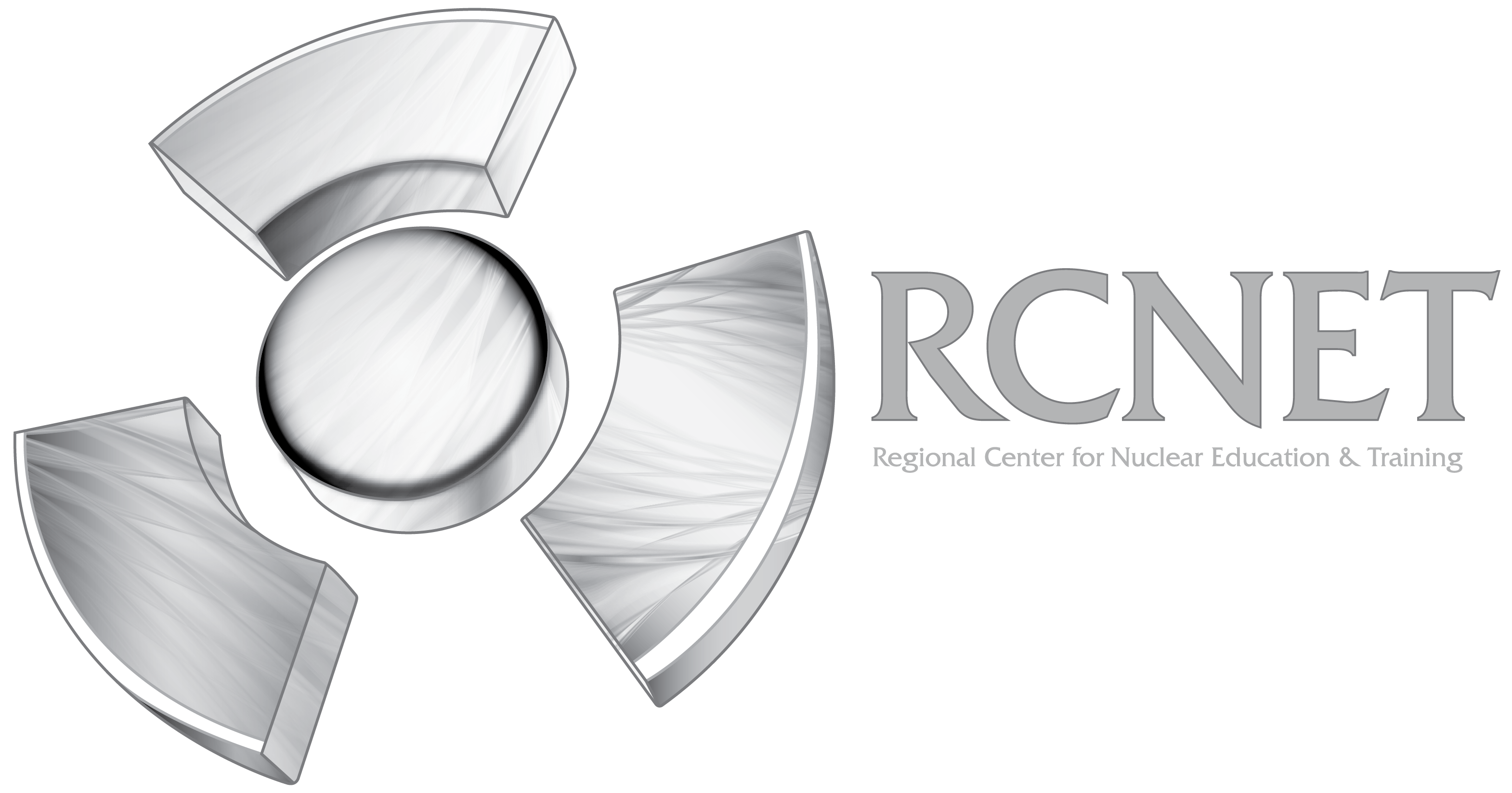ABOUT
The future of nuclear has never been brighter.
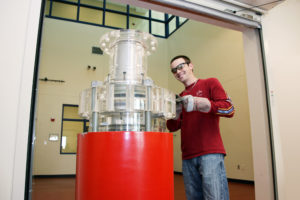
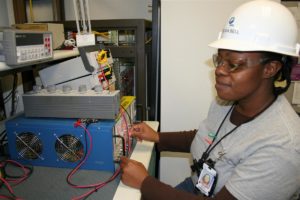
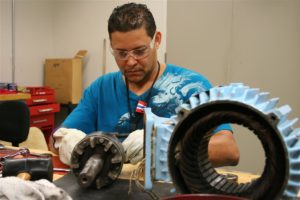
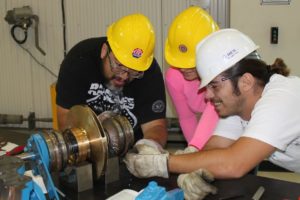
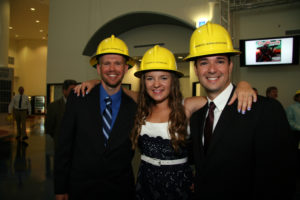
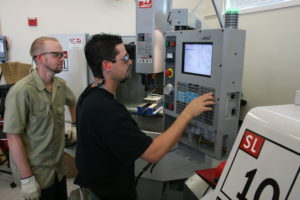
Due to growth, an aging workforce, international competition, and natural attrition the nuclear industry in the United States is experiencing unprecedented workforce demands. Over the next two decades, nuclear workforce needs will exceed the current pool of trained personnel. Current training platforms are not scaled to meet this need which puts both the industry and our nation at risk.
In August of 2011, National Science Foundation (NSF) established the Regional Center for Nuclear Education and Training (RCNET) to address these workforce demands in a unified and systematic way.
Our Mission.
To aid in the development and sustainability of a highly technical and skilled workforce pipeline for the nuclear fields of energy, environmental management, life and plant sciences, and nuclear processes in manufacturing.
Our Goals.
1. Expand and maintain a learning repository with comprehensive standardized curriculum solutions for energy, environmental management, life & plant sciences, and nuclear processes in manufacturing pathways.
2. Increase academic and career pathways for students and technicians across nuclear STEM fields.
3. Develop, promote, and broaden partnerships between industry and academic institutions to increase articulation, college completion, and career placement.
4. Develop and provide access to best practices in hands-on training, effective domain instruction, and emerging technologies through professional development.
5. Create and disseminate marketing material to increase awareness of nuclear academic programs and careers.
6. Promote and increase the number of under-represented populations in nuclear STEM fields
Meet Our Team.
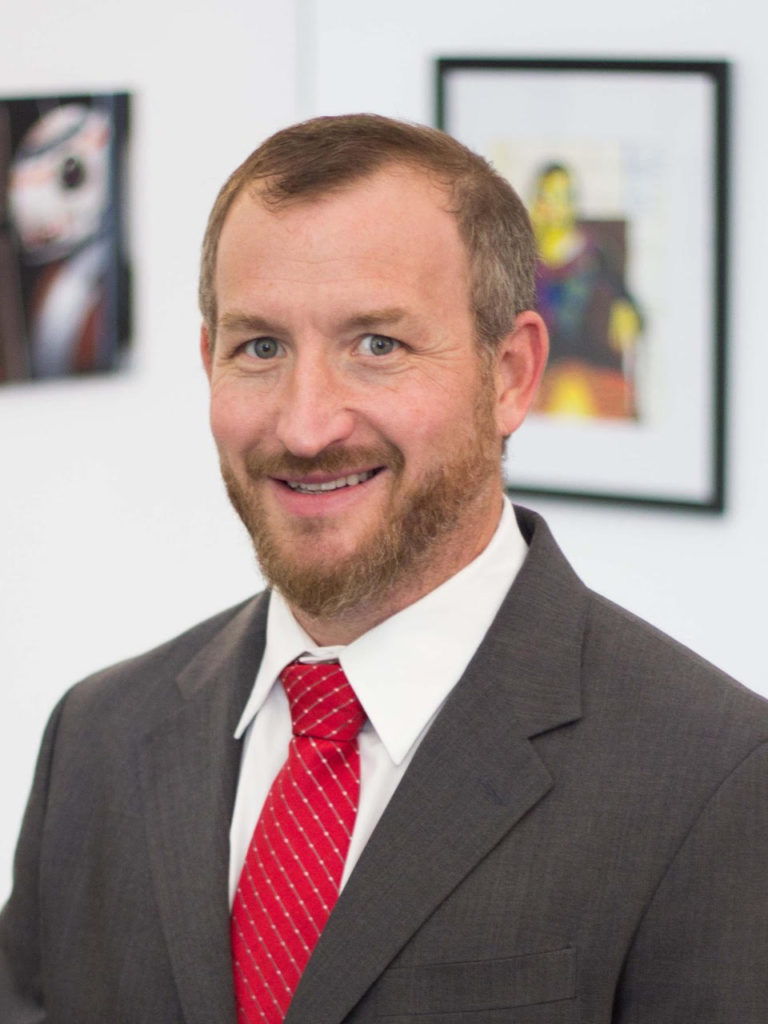
Dr. Kevin Cooper
Principal Investigator
Dr. Kevin Cooper is the Dean of Advanced Technology at Indian River State College, the 2019 ASPEN recipient for top college in the nation. Dr. Cooper is also the Principal Investigator of Project Vision and RCNET, NSF’s Centers focused on development STEM pipelines. Over the last 10 years, Dr. Cooper has been PI on over $20M in funds from NSF, DOE, NRC, EDA, DOL, and a host of non-profit organizations. Prior to joining IRSC, Dr. Cooper exited two successful startups in the general merchandise and chemical processing sectors. Dr. Cooper holds a Ph.D. in chemical engineering with over 50 papers and patents in a breadth of fields including nanotechnology, infectious disease, artificial intelligence, and environmental sciences.
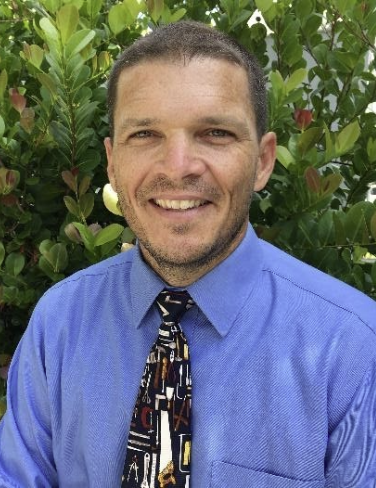
Nicholas Rotindo
Director
Nicholas Rotindo serves as the Director of the NSF ATE Center at Indian River State College. Nick is a graduate of The University of Florida’s Engineering School of Sustainable Infrastructure & Environment where he completed a Master’s of Science in Environmental Engineering Science. Nick worked as a research associate at the U.S. Department of Agriculture where he coordinated the research support and staff for the effective implementation and monitoring of alternative & experimental broad-spectrum fumigant programs. At the USDA, Nick developed novel methods of fumigant residue analysis and conducted environmental contaminant dispersion studies. He has also served as a researcher with the U.S. Department of Agriculture Subtropical Plant Pathology unit where he conducted environmental monitoring and developed environmental manipulation/control programs with a focus on citrus greening research and early virus detection. Nick has also operated as a consultant for soils research, environmental monitoring, hydrological modeling, stormwater dynamics, and civil engineering support. Nick has 15 years professional experience in all facets of scientific research and project management. He also holds certifications in basic marine engineering, firefighting, personal survival techniques, first aid & CPR, bicycle mechanics, auto mechanics, frame welding, stick welding, manufacturing education, and is a certified production technician. He is an avid surfer, free diver, fisherman, mountain bike rider, and brewer. He has hand built more than 50 surfboards and stand up paddle boards, a dozen bicycles, three power boats, custom industrial fabrication equipment, various metal art sculptures, and has renovated a 1978 42 foot sailboat. Nick’s passion is coincident with learning, adventure, complex problem analysis, and systems thinking.
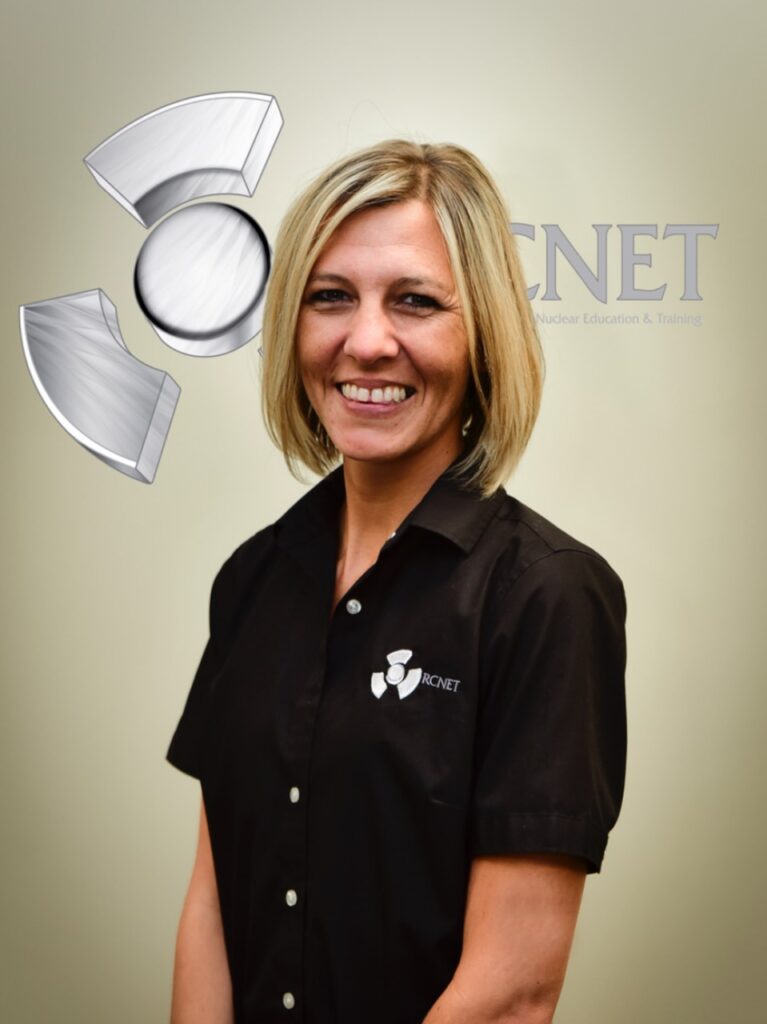
Samantha Travis
Co-Principal Investigator
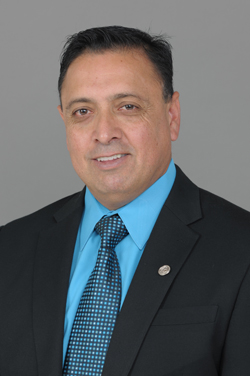
Leonel Lagos
Co-Principal Investigator
Dr. Leonel E. Lagos, is the Director of Research at Florida International University’s Applied Research Center (FIU-ARC) and Principal Investigator of a multi-million/multi-year Cooperative Agreement between the U.S. Department of Energy (DOE) and FIU in support of DOE’s environmental restoration program. Dr. Lagos is also the Principal Investigator for the Department of Defense’s Cybersecurity technology development program at FIU. Dr. Lagos is founder and Director of the DOE-FIU Science and Technology Workforce Development Program and Department of Defense Cyber Fellows Program. As director to these prestigious signature workforce development programs, Dr. Lagos trains and mentors FIU science, technology, engineering, and math (STEM) minority students and provides them with “hands-on” applied research, internships, professional development, and employment opportunities. Dr. Lagos collaborates across FIU’s Colleges, Schools Departments and Centers, as well as, international organizations [International Atomic Energy Agency (Austria), Nuclear Energy Agency (France), Institute for Energy Technology (Norway), Korea Atomic Energy Research Institute (South Korea)] in the development of cutting-edge research in the areas of robotics and remote systems, cybersecurity, artificial intelligence, machine/deep learning, big data, environmental restoration, and knowledge management and transfer. His research is sponsored by the Department of Energy (Office of Environmental Management, Office of Nuclear Energy University Programs, National Energy Technology Lab, and the Minority Serving Institutions Partnering Program), the Department of Defense’s Test Resource Management Center, National Science Foundation and private industry. Dr. Lagos is the current Chair of the American Nuclear Society’s Robotics and Remote Systems Division and serves as a member of the Waste Management Symposia’s Program Advisory Committee. Dr. Lagos is also an adjunct professor at FIU affiliated with FIU’s Mechanical & Materials and Biomedical Engineering Departments and a Graduate Faculty affiliated with the Civil and Environmental Department.
Our Partners.
RCNET is headquartered at Indian River State College but is a consortium of industry, higher education, and agency partnerships around the world.
Contributions to ATE, STEM, and Higher Education.
Advisory Boards and Working Groups
Recognizing that the STEM and ATE communities have a shared mission, RCNET has vertically and horizontally integrated itself into a wide breadth of collaborative organizations. Currently, RCNET serves on the advisory council or working groups for many organizations including:
- ATECentral
- The Future of Work Initiative
- American Nuclear Society Robotics and Remote Sensing Board
- Waste Management
- SMART Center
- International Atomic Energy Agency
- INPO Nuclear Uniform Curriculum Program
- National CyberWatch Center
- Department of Energy: EM Division STEM Outreach
Proposal Development and Collaborations
RCNET is focused on helping other colleges obtain funding to grow their nuclear and STEM programs. If you have interest in submitting an ATE proposal and need guidance or support, we will either directly support your efforts or pass you on a host of organizations that support such endeavors.
Mentorship and Connections
RCNET has helped over 40 colleges start or expand their programs. Additionally, we have built relationships with over 100 industry partners that employ over 300,000 STEM technicians. Our expertise in is in both being a connective catalyst and mentoring faculty to design, build, and make sustainable their programs.
If your organization needs help in any of these areas, please e-mail us at [email protected]
